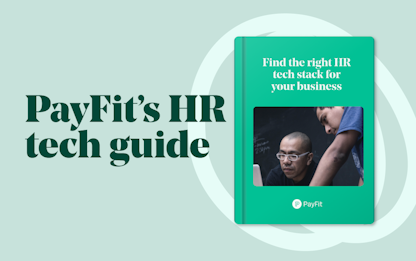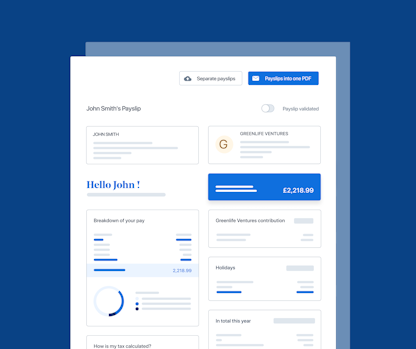- Blog
- |People management
- >Salaries & Benefits
- >group insurance for employees
Employee Benefits Insurance Plans Explained: A Guide for UK Employers


Among the many different kinds of benefits you can offer your workforce, employee benefits insurance plans can be the most cost-effective and comprehensive.
Let’s hone in on the topic of group insurance coverage and why it’s something your business should consider, whether it’s large or small, for your employees.
What do we mean by employee benefits insurance plans?
‘Employee benefits insurance’ refers to any kind of benefit you provide to your workforce via group coverage. This includes things like group health insurance, critical illness cover, income protection as well as life insurance. These types of insurance plans and benefit packages are becoming more valued by employees and are a cost-effective way for companies to offer vital financial protection to their staff.
How does group insurance work?
As covered above, employee benefits offered through insurance plans are provided through you, the employer, to your employees. In a lot of ways, group insurance works very similarly to individual insurance plans. The main difference is that as the company providing this type of insurance coverage, you are the master policy owner.
In other words, when buying group employee benefits insurance in the UK, the main contract will fall under your company’s name. Your employees will then be provided with confirmation of the coverage, in other words, a certificate of coverage which allows them to use the policy in question.
Each employee will be covered at a minimum, but coverage may also extend to family members, such as dependants, children under a certain age, parents and spouses.
Which businesses are eligible for employee benefits in the UK?
As long as your company is registered in the UK, you’re allowed to set up an insurance scheme for your staff. In order for your business to take out coverage, some schemes might require a minimum number of employees, such as three or five staff members, to start.
Which employee benefits are mandatory in the UK and do they include insurance plans?
While it’s not mandatory to offer employee insurance as a benefit, it can form an important part of your rewards & benefits strategy. Mandatory benefits for employees include:
Workplace pension schemes
Paternity and Maternity pay
Paid annual leave
How much does employee benefits insurance cost?
While it’s difficult to put an exact number to what a group insurance plan may cost (it’s up to your organisation to research different plans and providers), the cost usually depends on the type of coverage you want to offer. Health insurance, for instance, will cost more than dental coverage. The cost can also depend on the make-up of your workforce.
What is the most in-demand employee benefits insurance cover?
Health is generally at the top of most businesses’ lists when it comes to providing employee benefits. Life insurance, critical illness coverage and income protection all come in a close second.

Why buy group employee benefits insurance?
There are lots of reasons why you should purchase group insurance for your workers:
It enhances the financial wellbeing of your staff
First and foremost, group insurance coverage can significantly improve the financial security of your employees. It provides a safety net that covers unforeseen events, such as medical emergencies or critical illnesses, ensuring that your workforce is not burdened with unexpected financial challenges.
It’s more cost-efficient when compared to taking out individual plans
One standout advantage of group employee benefits insurance is its collective cost efficiency. By pooling resources, premiums are generally lower compared to individual policies. This not only makes it more affordable for employees but also underscores your commitment as an employer to wellbeing.
Helps attract and retain top talent
From the comprehensive coverage major providers offer to the extra perks that are included with group coverage like eating-out discounts, subscription services and cinema tickets, there are lots of ways group employee benefits insurance can help you attract the best talent. Employees today are discerning about their benefits package, and a robust insurance plan adds a compelling dimension to your overall compensation strategy.
Plans require low administration
Group insurance streamlines administrative processes for both employers and employees. With one, central policy, managing policy holders becomes more efficient, reducing the administrative burden on HR teams. This efficiency translates into a smoother experience for employees, who can easily access and understand their coverage.
Encourages wellness initiatives and prevention
Many group insurance plans incorporate wellness initiatives, promoting a proactive approach to health. This not only benefits individual employees but contributes to a healthier and more productive workforce. Prevention-focused features, such as regular health check-ups and wellness programs, can lead to reduced absenteeism and increased overall productivity.
Plans are flexible and easy to customise
Group insurance plans are versatile and can be tailored to meet the specific needs of your workforce. Whether it's life insurance, critical illness coverage, income protection, or dental insurance, the flexibility to customise allows employers to address the unique requirements of their diverse employee base.
Fosters a Culture of Care
Investing in group insurance goes beyond financial considerations. Employees feel valued when their employer prioritises their wellbeing, leading to increased morale and a positive work environment.
As you can see, the benefits of purchasing group employee benefits insurance are multifaceted, ranging from financial security to talent attraction and retention. It's a strategic investment that not only safeguards the interests of your employees but also contributes to the overall success and sustainability of your business.
Types of employee benefits insurance policies
There are several types of benefits that you can cover with group insurance. In this section, we cover the most common types of group policies your organisation can take out or buy.
Group health insurance
A group health insurance policy is designed to provide the employees within your organisation with comprehensive private health coverage. This coverage is provided through one single contract and can be used by both the employees and their families, irrespective of their work experience, role, age or gender.
These kinds of policies usually offer a range of health insurance benefits for employees, and payouts to cover hospitalisation and ambulance expenses, maternity and paternity leave, daycare cover, and worldwide treatment costs, among other health-related benefits. Some policies may also include critical illness coverage, though this can also be provided as a separate policy.
There are lots of different group health insurance plans designed for small businesses so it’s worth doing your research to find the best providers and policies that could suit your organisation and the needs of your staff.
Group critical illness cover
Sometimes employees can contract or develop a serious medical condition. In this case, critical illness insurance will provide a large payout if they survive a minimum period. The group critical illness cover you choose should list out all the diseases that are covered, which could include cancer, Parkinson’s disease, stroke, dementia and heart attacks.
Group life insurance
A group life insurance policy gets activated when an employee passes away, providing a larger payout to any beneficiaries the employee has designated. Otherwise known as a ‘death benefit’, life insurance can provide employees with a sense of peace of mind that their loved ones won’t have to worry so much about finances, particularly in the event of their early passing. Usually, employees don’t need to undergo any pre-medical checks to obtain cover, so some providers may have different rules around this.
When it comes to group life insurance for small businesses, there are lots of different providers out there, so we’d encourage you to do your research and find a policy that caters to your business’s needs.
Income protection
Income protection offers employees additional financial support if they suddenly can’t work due to a sickness or disability. A group income protection plan will offer the employee a payout in the form of regular income, up until when they return to work.
Group dental insurance
Company dental insurance is a more specific type of health insurance cover that takes care of any costs associated with dental care - think routine checkups and hygiene appointments as well as dental procedures. Just like regular health insurance, these plans can often cover the employee’s family members as well.
Pulling it all together
Group employee benefits insurance can be a cost-effective and hassle-free solution to providing broad and comprehensive benefits to your workforce. You won’t have to spend hours administering individual plans and employees get to enjoy additional perks like discounts to their favourite restaurants, retailers and cinemas. It’s one of the best ways of providing your staff with coverage for the things that matter most like their health, and what happens after they pass away. For more information on employee benefits, health and wellbeing, explore the employee wellbeing section of our blog.


The 2024 UK National Living Wage - An Employer’s Guide

The Cost Of Recruitment In The UK - What You Might Not Know

UK National Insurance Changes for January 2024

End Of Tax Year 2023/2024 - Eight Key Changes For 24/25

Strategies to Reduce Employee Turnover


